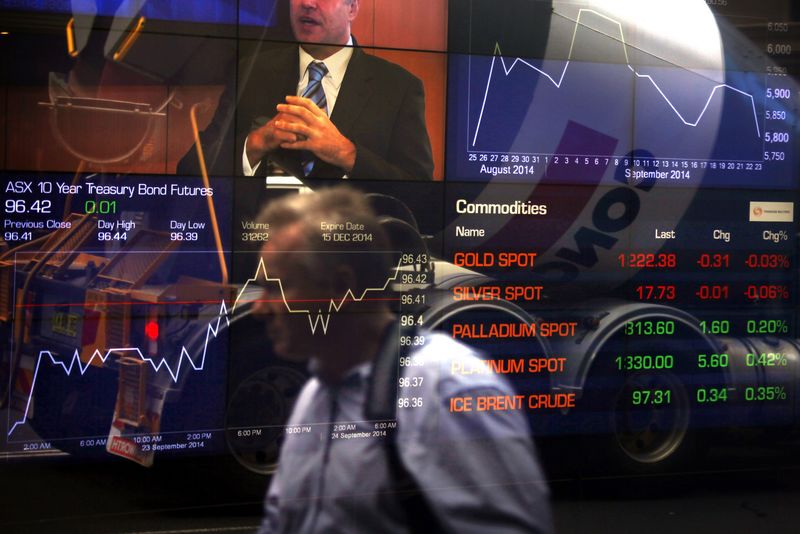Escalating tensions in the Middle East resulted in an afternoon sell-off on Wall Street overnight, which is expected to carry over to the local market this morning.
The ASX is set for sharp fall on opening, with the SPI 200 Futures down 63 points, or 0.8%.
Adding to the weight on Wall Street were comments from Minneapolis Fed boss Neel Kashkari said if inflation stalls he sees the “possibility” for no US rate cuts this calendar year. He described recent months’ inflation data as concerning, with inflation having moved sideways, rather than falling.
The Middle East tensions pushed oil prices to five-month highs to above US$91 per barrel.
What happened overnight?
(Source Commsec):
US markets
US sharemarkets fell on Thursday, with investors on edge ahead of Friday's crucial US March jobs report.
- The Dow Jones index fell by 530 points or 1.4%, its biggest percentage drop since 22 March 2023, after being up 294 points earlier in the session.
- The S&P 500 index slid 1.2%.
- The Nasdaq index shed 228 points or 1.4%.
A spike in oil prices and fears the US Federal Reserve could hold-off cutting interest rates added to the day’s poor sentiment.
Alphabet (NASDAQ:GOOGL) slipped 2.8% on reports that the Google-parent has been talking to its advisers about the possibility of making an offer for cloud-based CRM platform HubSpot. Lamb Weston slid 19.4%, the worst performer in the S&P 500 index, after the fries producer missed its third-quarter earnings and revenue. Health care stock Solventum rose 4.9% after it was spun-off from 3M (NYSE:MMM) on Monday. But 3M shares slipped 2.8%, weighing on the Dow Jones index.
European markets
European sharemarkets edged higher on Thursday, as investors were encouraged by signs of recovery in the euro zone economy as well as inflation getting under control.
COB's composite purchasing managers' index (PMI) rose to 50.3 in March from February's 49.2 (survey: 49.9). Euro zone producer prices eased 1% in February (survey: -0.7%).
Basic resources stocks rose 1.6% as copper prices hit 14-month highs. Automakers and banks gained more than 1% each.
- The continent-wide FTSEurofirst 300 index rose by 0.1%.
- In London, the UK FTSE 100 index gained 0.5%
Currencies
Currencies were mixed against the US dollar in European and US trade.
The Euro fell from US$1.0874 to US$1.0831 and was near US$1.0835 at the US close.
The Aussie dollar dipped from US66.18 cents to US65.78 cents and was near US65.80 cents at the US close.
The Japanese yen rose from 151.76 yen per US dollar to JPY151.13 and was near JPY151.30 at the US close.
Commodities
Global oil prices rose on Thursday. Brent crude climbed above US$90 a barrel for the first time since October, extending a rally driven by OPEC+ production cuts, strong demand and heightened geopolitical risks.
- The Brent crude price rose by US$1.30 or 1.5% to US$90.65 a barrel.
- The US Nymex crude price lifted US$1.16 or 1.4% to US$86.59 a barrel.
Base metal prices advanced on Thursday.
- Copper futures hit their highest in more than 14 months, up 1.3%, helped by fund buying after the US dollar's dip to a two-week low.
- Aluminium futures gained 0.6%
The gold futures price fell by US$6.50 or 0.3% to US$2,308.50 an ounce on Thursday, as investors await more clarity on the timing of potential interest rate cuts.
- Spot gold was trading near US$2,285 an ounce at the US close after hitting a record high of US$2,304.09 earlier in the day.
Iron ore futures dipped US52 cents or 0.5% to a near 10-month low of US$99.89 a tonne on Thursday as Australian exports climbed.
Shipments of the steelmaking material from Australia in the week to March 22 were 30% higher than two weeks earlier.
What’s on?
In Australia, international trade and detailed retail trade data are both scheduled. Telix Pharmaceuticals hosts an extraordinary general meeting.
In the US, nonfarm payroll jobs data is released with consumer credit figures.
On the small cap front
The S&P ASX Small Ordinaries ended up 1.10% yesterday, while the ASX 200 gained 0.45%.
You can read more about the following throughout the day.
